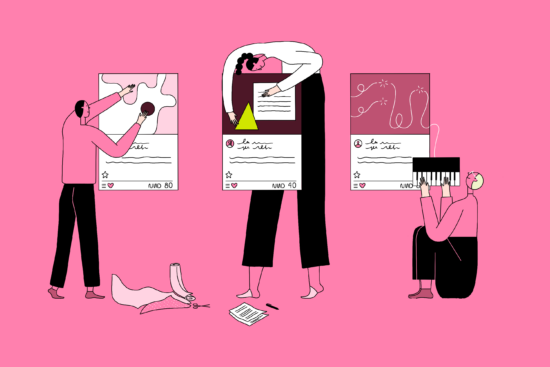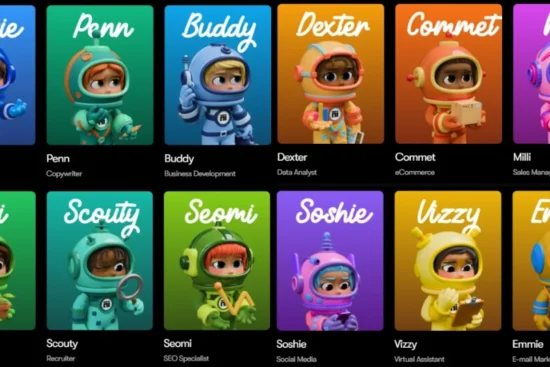
Artificial Intelligence (AI) has transitioned from being a futuristic concept to an integral part of modern life. As we approach 2025, the potential for AI to revolutionize industries, transform societies, and redefine the human experience continues to grow. However, this journey comes with challenges, particularly in ensuring AI is developed and deployed ethically while promoting harmonious integration with humanity.
This blog delves into the projected state of AI by 2025, focusing on advancements, ethical dilemmas, and how humans and machines can coexist effectively.
1. AI Advancements by 2025: What’s on the Horizon?
a. Enhanced Natural Language Processing (NLP)
AI systems like ChatGPT have already demonstrated the ability to understand and generate human-like language. By 2025, NLP is expected to become even more sophisticated, enabling machines to comprehend context, emotion, and nuance with unprecedented accuracy. Applications will range from enhanced customer service to real-time translation, making cross-cultural communication seamless.
b. Autonomous Systems
Autonomous vehicles, drones, and robots are poised to become mainstream by 2025. With advancements in computer vision and decision-making algorithms, these systems will operate more safely and efficiently. Industries such as logistics, agriculture, and healthcare will benefit immensely from this automation.
c. Healthcare Revolution
AI-driven diagnostics and personalized medicine will be the cornerstone of healthcare by 2025. With access to massive datasets and advanced predictive models, AI will help doctors identify diseases earlier and suggest tailored treatment plans, improving outcomes and reducing costs.
d. AI in Creative Industries
From music composition to filmmaking, AI’s role in creative domains is expanding. By 2025, AI tools will enable creators to collaborate with intelligent systems, accelerating innovation while preserving artistic integrity.
2. The Ethical Challenges of AI Development
As AI becomes more pervasive, ethical considerations will take center stage.
a. Bias in AI Systems
AI systems are only as unbiased as the data they are trained on. By 2025, addressing and mitigating biases in AI algorithms will be critical to prevent reinforcing societal inequalities. Developers will need to implement rigorous data audits and diverse representation in training datasets.
b. Privacy and Data Security
The reliance on massive datasets raises concerns about user privacy. By 2025, stringent regulations and encryption techniques must be in place to safeguard sensitive information while maintaining AI efficiency.
c. Accountability and Transparency
Who is responsible when AI makes a mistake? By 2025, clear frameworks for accountability will be essential to ensure trust. Explainable AI (XAI) will gain prominence, allowing users to understand how AI systems make decisions.
d. Ethical Use of Autonomous Systems
The deployment of AI in warfare and surveillance poses significant ethical dilemmas. By 2025, global agreements and policies will be necessary to prevent misuse and ensure these technologies are used responsibly.
3. Human Integration with AI: Bridging the Gap
As AI systems become more capable, the relationship between humans and intelligent machines will define the next phase of technological progress.
a. Human-Centered AI Design
By 2025, there will be a shift toward designing AI systems that prioritize human needs and values. This approach will ensure AI complements human abilities rather than replacing them. Examples include AI-assisted tools for teachers, healthcare providers, and knowledge workers.
b. Reskilling the Workforce
AI’s rise will undoubtedly disrupt labor markets. To ensure seamless integration, educational systems and corporations will prioritize reskilling programs. By 2025, initiatives focusing on digital literacy, machine learning basics, and AI ethics will empower workers to thrive alongside intelligent systems.
c. Collaboration Over Competition
The future isn’t about humans versus machines but humans working with machines. By 2025, AI will serve as a collaborator in fields like research, engineering, and creative arts, amplifying human potential while reducing repetitive tasks.
d. Addressing Psychological Impacts
The integration of AI into daily life can lead to anxiety about job security, loss of autonomy, or over-reliance on machines. By 2025, policymakers and mental health professionals will need to address these concerns through education and support systems.
4. Key Industries Impacted by AI in 2025
a. Education
AI will revolutionize education by offering personalized learning experiences. Adaptive learning platforms will identify individual strengths and weaknesses, tailoring content to maximize student success. Virtual tutors powered by AI will be a common feature by 2025.
b. Retail and E-Commerce
AI will dominate customer experience in retail. From chatbots providing 24/7 support to predictive analytics offering personalized recommendations, AI will transform how consumers shop. Autonomous delivery systems, including drones, will further streamline the supply chain.
c. Finance
AI will enhance fraud detection, streamline financial operations, and provide sophisticated robo-advisors for personalized investment strategies. By 2025, blockchain combined with AI will offer unprecedented security and efficiency in transactions.
d. Climate and Sustainability
AI will play a pivotal role in addressing climate challenges. Advanced models will optimize energy use, monitor environmental changes, and develop sustainable technologies to combat global warming.
5. Preparing for the Future: Ethical AI Frameworks
a. Global Collaboration
Developing ethical AI requires international cooperation. By 2025, organizations like the United Nations, European Union, and other global entities will establish guidelines for responsible AI development.
b. Public Participation in AI Policy
To ensure fairness, policymakers will engage citizens in shaping AI regulations. Transparency in AI development and its societal implications will foster public trust.
c. Continuous Monitoring
Ethical AI isn’t a one-time achievement but an ongoing process. By 2025, AI developers will adopt continuous monitoring practices, ensuring that systems remain aligned with societal values as they evolve.
6. The Vision for Ethical AI in 2025
The ultimate goal of ethical AI is to create systems that enhance human well-being while respecting individual rights and societal values. By 2025, we envision:
- Inclusive AI: Systems designed to represent diverse perspectives and minimize bias.
- Transparent AI: Explainable algorithms that allow users to understand decision-making processes.
- Responsible AI: Strict guidelines for deploying AI in sensitive applications, from surveillance to healthcare.
Conclusion
The year 2025 will mark a transformative period for artificial intelligence, characterized by remarkable advancements and pressing ethical considerations. Achieving a future where AI and humanity coexist harmoniously will require collaboration across industries, governments, and societies.
As we navigate this complex landscape, the focus must remain on ensuring AI serves as a force for good, empowering humans to reach new heights while safeguarding ethical principles. The integration of AI into our lives isn’t just a technological challenge—it’s a societal opportunity to redefine what it means to be human in an age of intelligence.












